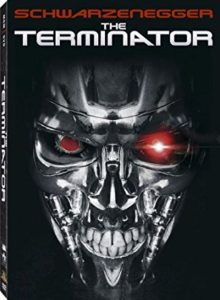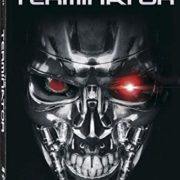Elon Musk is wrong about the dangers of machine learning and artificial intelligence
 Despite Elon Musk’s warnings this summer, there’s not a whole lot of reason to lose any sleep worrying about Skynet and the Terminator. Artificial Intelligence (AI) is far from becoming a maleficent, all-knowing force. The only “Apocalypse” on the horizon right now is an over reliance by humans on machine learning and expert systems, as demonstrated by the deaths of Tesla owners who took their hands off the wheel.
Despite Elon Musk’s warnings this summer, there’s not a whole lot of reason to lose any sleep worrying about Skynet and the Terminator. Artificial Intelligence (AI) is far from becoming a maleficent, all-knowing force. The only “Apocalypse” on the horizon right now is an over reliance by humans on machine learning and expert systems, as demonstrated by the deaths of Tesla owners who took their hands off the wheel.
Examples of what currently pass for “Artificial Intelligence” — technologies such as expert systems and machine learning — are excellent for creating software. AI software is truly valuable help in contexts that involve pattern recognition, automated decision-making, and human-to-machine conversations. Both types of AI have been around for decades. And both are only as good as the source information they are based on. For that reason, it’s unlikely that AI will replace human beings’ judgment on important tasks requiring decisions more complex than “yes or no” any time soon.
Expert systems, also known as rule-based or knowledge-based systems, are when computers are programmed with explicit rules, written down by human experts. The computers can then run the same rules but much faster, 24×7, to come up with the same conclusions as the human experts. Imagine asking an oncologist how she diagnoses cancer and then programming medical software to follow those same steps. For a particular diagnosis, an oncologist can study which of those rules was activated to validate that the expert system is working correctly.
However, it takes a lot of time and specialized knowledge to create and maintain those rules, and extremely complex rule systems can be difficult to validate. Needless to say, expert systems can’t function beyond their rules.
By contrast, machine learning allows computers to come to a decision—but without being explicitly programmed. Instead, they are shown hundreds or thousands of sample data sets and told how they should be categorized, such as “cancer | no cancer,” or “stage 1 | stage 2 | stage 3 cancer.”
Read more about this, including my thoughts on machine learning, pattern recognition, expert systems, and comparisons to human intelligence, in my story for Ars Technica, “Never mind the Elon—the forecast isn’t that spooky for AI in business.”



